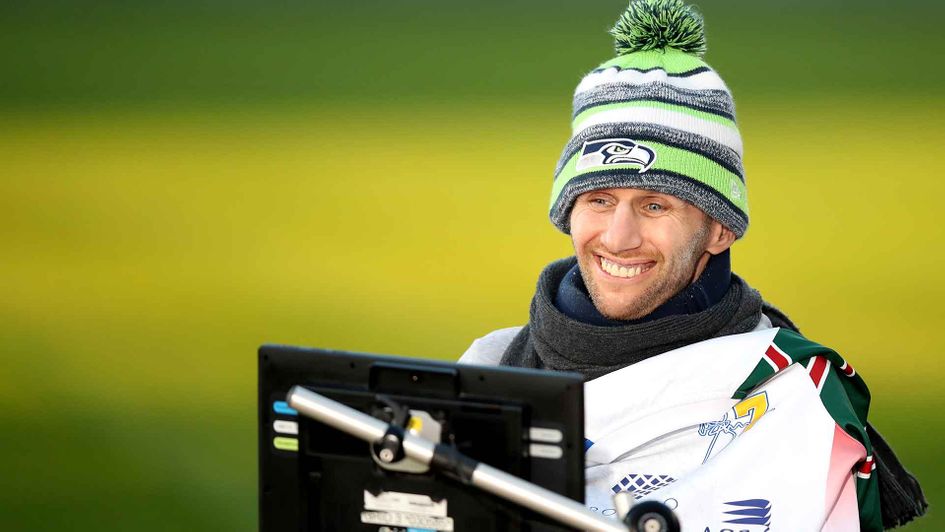Rob Burrow has no regrets about playing rugby league and would not discourage his children from following in his footsteps.
The former Leeds and Great Britain scrum-half is now confined to a wheelchair and unable to perform basic functions without help as motor neurone disease takes an increasing hold of his body.
Former rugby players are 15 times more likely to suffer from MND than the average person according to a new study, but Burrow, who was diagnosed with the disease in December 2019, is not entirely convinced by the findings.
“It was such small sample so I cannot really comment,” Burrow told the PA news agency. “More research needs to be done.”
Burrow, who won eight Super League titles during his glittering career with the Rhinos, insists he would not change anything from his past and would be happy for children Macy (10), Maya (7) and Jackson (3) to take up rugby.
“I’d like my kids to do whatever sports they desire,” he said with the use of eye-recognition technology. “There is no evidence that anything causes MND. I think I was so unlucky that I got the disease.
“The positives outweigh the negatives. I would not be the person I am today without the experience I got from playing rugby league, the friendships and bonds and life experiences, travelling the world.”
Rob and his wife Lindsey, who cares for her husband full-time despite having to look after their three young children and holding down a job as a physiotherapist, are the subjects of BBC documentary ‘Rob Burrow: Living with MND’, which airs next Tuesday.
It is a moving and intimate account of how the family cope with the debilitating illness and yet somehow remain upbeat, with Burrow maintaining he is “not giving in, right until my last breath” as he has “too many reasons to live”.
In the heart-wrenching documentary, he says: “I’m a prisoner in my own body, that’s the way MND gets you. The lights are on but no one’s home.”
Essentially a private person, Lindsey opens up about the difficulties the family experience and, movingly, contemplates a future without her childhood sweetheart.
“I’ve watched it back and there were plenty of tears,” she said. “I cried pretty much all the way through it. As soon as I start talking about Rob and the children and the future, that’s where it pulls at your heart strings.
“I’m out of my comfort zone, but at the end of the day it’s not about us. The reason for doing this is to raise awareness about how brutal and cruel and devastating MND is and that it doesn’t just affect the person, it affects the whole family.
“Me doing an interview is nothing compared to what Rob and many other sufferers go through, it puts it into perspective and, if we can help one other person or raise more awareness and more funds for research, it can only be a good thing.
“It’s really tough doing those interviews, but I don’t want people to be sad. Yes it is a sad story, but there is a lot of hope in there as well, seeing the kids and just how much they love life.
“If you spin it on its head, the message I hope people will take from it is that life is for living and, despite what life throws at you, you can still have happy times and happy memories despite the heartache and the sadness.”
Arguably the star of the documentary is Macy, who describes a biography she wrote about her father as part of a school project.
“They were asked to write about someone who had inspired them and Macy chose to write about her dad,” explained Lindsey. “It was never intended to be in the documentary, but some of the things she said really fitted in well. She almost narrated the story through it.
“It tells the story of how much she looks up to Rob and what a brilliant father figure he’s been to the children and how much they think of him.
“The children just love life and waking up on a morning and seeing the three children happy and smiling, it keeps you going.”
